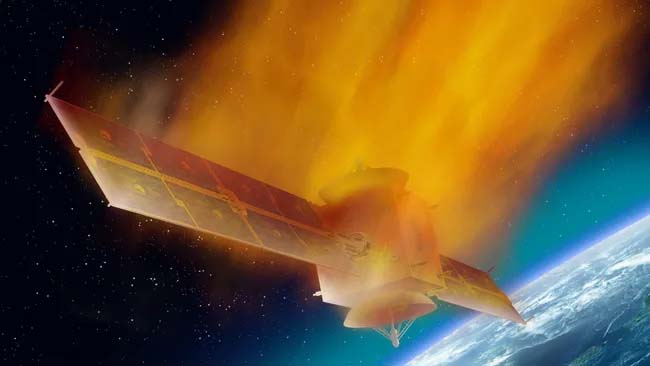Technology: The growing number of rocket launches and satellites burning up in Earth’s atmosphere could trigger the world’s next big environmental emergency. Experts are trying to understand the new threat before it’s too late. The space industry is growing rapidly. Over the past 15 years, the number of rockets launched per year has roughly tripled, and the number of satellites orbiting the planet has increased tenfold, according to Statista. The amount of space debris falling back to Earth — old satellites and spent rocket stages — has doubled over the past 10 years. A few hundred tons of old space trash now vaporizes in the atmosphere each year, experts say.
And all of that is just beginning. Applications for satellite spectrum for 1 million satellites have been filed with the International Telecommunications Union, and, though not all of those plans are likely to come to fruition, experts expect that by the end of this decade, about 100,000 spacecraft could be orbiting Earth. Most of these satellites will belong to one of the megaconstellation projects that are being planned or deployed, such as SpaceX’s Starlink. By that time, the amount of space debris burning up in the atmosphere on an annual basis is expected to exceed 3,300 tons (3,000 metric tons). Most rockets used today run on fossil fuels and release soot, which traps heat and can raise temperatures in the upper levels of Earth’s atmosphere. The atmospheric combustion of satellites creates aluminum oxides, which can also alter the planet’s thermal balance.
Studies show that both types of emissions also have the potential to destroy ozone, a protective gas that prevents dangerous ultraviolet (UV) radiation from reaching Earth’s surface. A study published in June in the journal Geophysical Research Letters found that concentrations of aluminum oxide in the mesosphere and stratosphere — the two atmospheric layers above the lowest layer, the troposphere — could increase by up to 650% in the coming decades due to an increase in space re-entering debris. Such an increase could cause “potentially significant” ozone depletion, the study concluded. Another study, published a year earlier and authored by a team from the U.S. National Oceanic and Atmospheric Administration (NOAA), concluded that an expected increase in soot-producing rocket launches would have a similar effect on ozone depletion.
